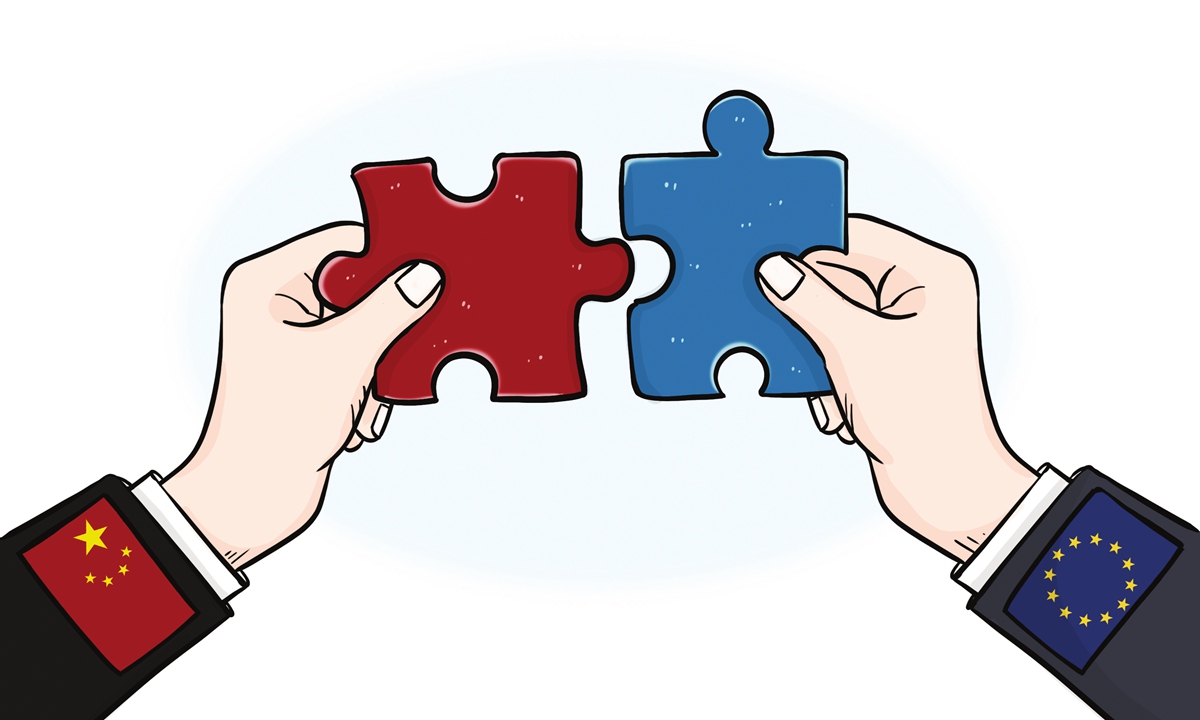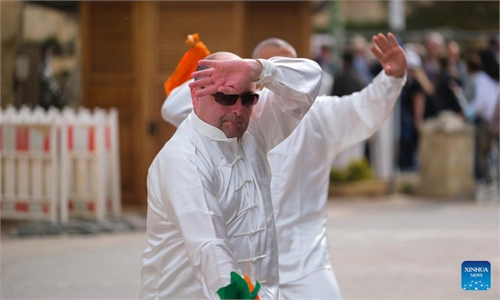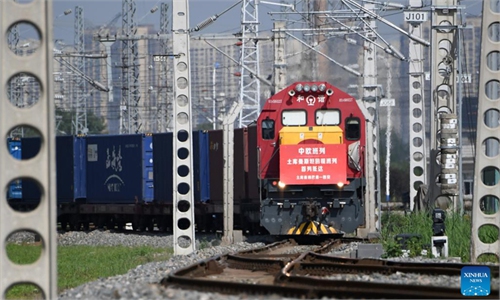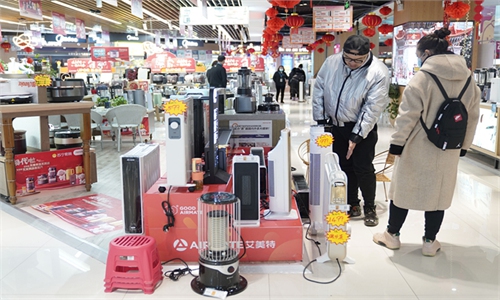German-French rift on China policy reflects 'sour grapes' mentality
Experts cite power struggles in EU, unresolved internal issues

China EU relations Photo: Global Times editorial
France and Germany, the two powerhouses anchoring the economy and security of the EU for decades, have been recently showing divergences on various topics including energy, defense and China policy.
Experts said the fundamental reasons for this divergence are unresolved issues from each other's internal affairs, and a growing trend of imbalance between the two countries on power and influence on the EU amid the Russia-Ukraine conflict. On China policy, however, it reflects the struggle of power interests within the EU, as well as a "sour grapes" mentality.
France and Germany scaled back a leaders' summit on Wednesday while instead only engaging in a more modest private working lunch inside the Elysée Palace.
German Chancellor Olaf Scholz and French President Emmanuel Macron were initially expected to meet in Fontainebleau, south of Paris, with their cabinet members in tow. That customary display of Franco-German unity was abruptly rescheduled for January, said a report by the Wall Street Journal on Wednesday.
While there was no joint news conference in front of the cameras after the lunch, officials said they discussed the overall state of the France-German relationship as well as their stances on energy and defense, the two most distinct areas of difference.
One of the most direct reasons for their frosty relationship is the struggles in internal affairs on each side, experts said. For Germany, the priority is still how to coordinate the three-party coalition, while for France, Macron faces a tough dilemma in parliament. Issues in their internal affairs have made it more difficult to make concessions for one another, such as on the energy front.
Another reason cited by some analysts is a growing trend of imbalance between the two countries' comprehensive power and their influence on the EU.
With Berlin planning a 100 billion euro ($100.4 billion) plan to shore up its defense capabilities to become "the best equipped armed force" in Europe, it has, to the eyes of the French, broken the power balance between the two countries and "taken away" France's strong suit, resulting in a potential shift of leadership in Europe, Cui Hongjian, director of the Department of European Studies at the China Institute of International Studies, told the Global Times on Thursday.
The Wall Street Journal reported that Scholz's plan to visit China next month with a delegation of business leaders was also among the topics during the Wednesday lunch, an issue that has "become a source of frustration for European leaders who fear Beijing aims to pit Germany against its neighbors."
Observers noted that their rift on China is a reflection of the struggle of power interests within the EU, as well as a "sour grapes" mentality when seeing the close ties between China and Germany.
"Some voices in the EU have been stressing plans to cooperate with China as a whole, but some countries worry that China may exert influence on Europe through certain countries. The fact is that the EU has yet to form a united stance on foreign policy, and China's ties with Germany, France and the EU are not mutually exclusive," Cui said.
What's more, the divergence on China policy between Germany and France is also a result of gaps in their closeness to and reliance on China in terms of trade.
Objectively speaking, Germany's economy is more externally oriented and more dependent on the Chinese market compared with France, so it's normal that they will hold different attitudes on their cooperation with China, the expert added.
Observers have urged the two sides to pare back their differences as soon as possible, as the divergence would further add to the fragmentation of Europe, and the European integration process would face a loss of direction and waning momentum.
Both Macron and Scholz have already sought to downplay their differences.
Scholz said on Twitter after the meeting that he had "a very good and important conversation today" with his French counterpart on issues including energy supply and joint armament projects, stressing that "Germany and France are standing closely together and tackling the challenges together."
Macron told the media last week that "We don't always have the same positions, which is normal… But as I have always said to you, European unity is key in this period and that is what we are working on."
"The problems they are facing now have prompted them to revisit just how important it is to stay coordinated rather than divided. This Wednesday meeting sent a positive signal that they want to patch things up," Cui told the Global Times.



